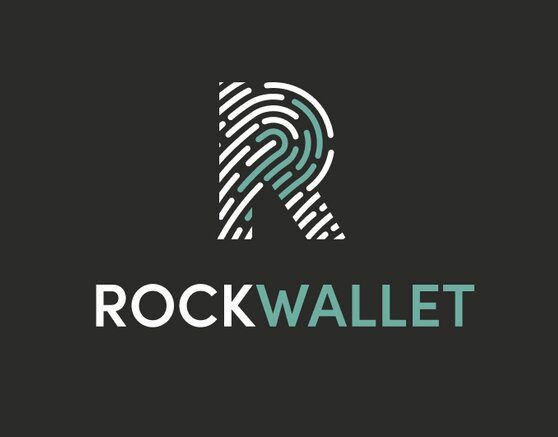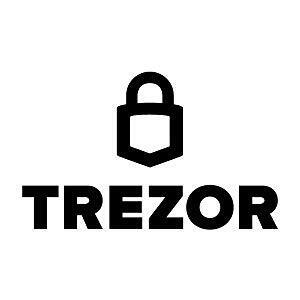Comparing the Top 10 Crypto Wallets
Crypto Wallet
What Feature Stands Out
Best for
Trade
What Is a Cryptocurrency Wallet?
A cryptocurrency wallet is a physical or digital tool to store, manage, and transact with your cryptocurrencies securely. While your coins always remain on the blockchain, your wallet holds the keys that grant you access to your assets. If you’re serious about crypto, finding the best crypto wallet is an essential step in the investment journey.
The Importance of Protecting Your Crypto With Secure Storage
In the wild world of cryptocurrency, keeping your assets safe is crucial. A secure wallet both shields your funds from theft and hacking, and ensures access to your investments. With the right security measures, you can trade and hold your assets without worrying about theft or hacking. Using a wallet to secure your passkeys, increases the security, control, and autonomy of your cryptocurrency investments.
Most Secure Crypto Wallets in 2026
If you’re looking for the most secure choice, hardware wallets are it. We’ve compared the best names on the market and their key features to narrow down our favorites. Take a look at our choices for the top 5 crypto wallets in the hardware category.
1. Ledger Nano X: The Best Crypto Wallet
Ledger Nano X is the top hardware wallet on this list, letting you securely store and manage your crypto, NFTs, and keys. The Ledger Nano X is user-friendly, feature rich, and offers multiple levels of security, including a secure element chip, keeping your crypto safe from hackers and malware attacks.
It also has excellent backup capabilities, and supports over 5,500 different assets, giving incredible versatility. Bluetooth capability is a plus, so you can manage your crypto wirelessly on your favorite browser, or on the Ledger Live app, which is available for both Android and iOS devices.
- Flagship Ledger wallet with industrial-grade security with bluetooth
- Supports over 1300 crypto assets and tokens
- Supports all major desktop and mobile operating systems
- Connect to Ledger Live for staking, DeFi, NFTs and more
2. Ledger Nano S Plus: The Best Budget Crypto Wallet
The Ledger Nano S Plus is fantastic if you need a more affordable option. You can store and manage your crypto, NFTs, and keys behind reliable security, including a secure chip. Like the Nano X, it supports over 5,500 different assets. The Ledger Live app makes it easy to access your crypto on the go, whether you’re using an Android or iOS device, or your favorite browser.
- Exceptional value for the price
- Huge improvement over original Nano S with better screen and more storage
- Install over 100 apps with support for thousands of assets
- Connect to Ledger Live for staking, DeFi, NFTs and more
- One of the most widely supported hardware wallets in crypto
3. Trezor Model-T: The Best Alternative Option
Trezor Model-T is an advanced hardware wallet with top-notch security and a user-friendly full-screen touchscreen interface. You can store and manage your crypto, NFTs, and keys with multiple layers of protection, including Shamir Backup. With support for thousands of assets, the Model-T is incredibly versatile. The Trezor Suite app is available for both Android and iOS devices, or you can use your favorite browser.
- Top-tier cryptocurrency wallet with impressive touchscreen
- Compatible with a number of software wallets
- Store cryptocurrency, passwords and other keys with ease
- Excellent customer support
4. Trezor One: Best Simple Design
Trezor One is reliable and straightforward, storing your crypto, NFTs, and keys behind solid security features. A smart chip protects your crypto, and the wallet supports over 1,000 different assets. The Trezor Suite app makes it easy to trade on the go on a browser, Windows, Android or iOS device.
- Affordable price
- Simple to use
- Supports over 1000 coins and tokens
- Trusted brand
5. Ellipal Titan: The Best User-Friendly Hardware Wallet
Ellipal Titan is incredibly user-friendly and secure, and features a full-screen interface, allowing you to easily store and manage your crypto, NFTs, and keys. The Titan is air-gapped and uses QR codes for transactions. With support for a wide range of assets, the Ellipal Titan is perfect if you prize user-friendliness and security. The Ellipal app is available for both Android and iOS devices.
- Completely air-gapped hardware wallet
- Tamper proof and keys are never exposed to the internet
- Connects with the Ellipal app to easily send and receive crypto
- Up-and-coming company
How to Keep Bitcoin, Ethereum, and NFTs Safe: Storage Types Explained
Choosing the best crypto wallet for your needs is no simple task. You are picking the interface responsible for keeping and safeguarding your assets. Here’s a very basic explanation of how different kinds of crypto wallets function:
- Custodial and non-custodial determines who holds your keys.
- Hot and cold determines whether your keys are stored online or offline.
- Hardware and software determine the way in which your keys are stored.
Each wallet has two keys: a public key, which acts like your wallet address for receiving crypto, and a private key, which you keep secret and use to authorize transactions. Your wallet uses these keys to securely sign and verify transactions when you send or receive crypto.
Different Types of Crypto Wallets
Distinguishing between the various options will help you find the right storage solution for you. Here are some factors to consider:
Type
Key storage
Internet connection
Examples
Cold wallet
Offline device or on paper
Usually offline
Hardware or Software: Which is the Best Crypto Wallet?
While hardware and non-hardware wallets differ in terms of security, convenience, and storage methods, each has advantages and disadvantages. These differences play a crucial role in how you manage and protect your cryptocurrencies, which can make the decision difficult.
Hardware wallets are more costly, but the payoff is increased security, especially if you want to hold a lot of crypto and don’t transact frequently. They’re often equipped with advanced security features like PIN protection, QR code and/or biometric identification, and recovery phrases, so your crypto stays safe, even if the wallet is lost or stolen. You can even buy metal crypto wallets that let you imprint or etch your recovery phrase, boosting security.
Software wallets also store your private keys, but more conveniently, allowing you to transact more often. The trade-off is that they’re more vulnerable to online threats, like hacking or malware, so it’s better to use them for smaller amounts of crypto.
Balancing Security and Accessibility
The solution? Most professionals use a combination of hardware and non-hardware wallets to manage their funds.
Let’s compare the benefits of hardware vs. software wallets so you can decide which type fits your needs best:
| Feature | Hardware Wallets | Software Wallets |
|---|---|---|
| Storage | Physical devices for private keys. Offline storage | Digital applications that store private keys online or within an app |
| Security | Offline storage, making them highly secure and less likely to be hacked | Online storage, making them more vulnerable to hacking and malware attacks |
| Ease of Use | Requires physical interaction when transacting. Beginners may find them less intuitive to use | Generally more intuitive and user-friendly. Ideal for beginners |
| Cost | Typically, more expensive | Often free or low-cost |
| Transaction Frequency | More suited for long-term storage and less-frequent transactions | More suitable for frequent transactions and everyday use |
| Backup & Recovery | Can be backed up with a recovery phrase if the device is lost | Can also be backed up with a recovery phrase. Easier to recover if the software is compromised |
| User Interface | Typically, straightforward but requires physical interaction | User-friendly interfaces make access and management easier |
| Accessibility | Requires carrying the physical device and connecting it to a computer or smartphone | Easily accessible with internet connectivity |
How to Choose the Best Cryptocurrency Wallet
When it comes to choosing the right storage solution a few things may top the list, like ease-of-use, security, and multi-asset support. Consider these must-haves before making your purchase:
- Security – Look for security features like hardware security modules (HSM), multi-signature support, air-gapping, and QR code or biometric authentication.
- Asset Support – Most wallets support a wide range of crypto types. For instance, the Ledger Nano X supports over 5,500 coins and tokens. The Bitget wallet offers support for over 100 mainnets and 250,000 tokens.
- Compatibility – Most top crypto wallets offer support for numerous devices. Some hardware wallets, like the Trezor Model T offer USB-C connectivity. KeepKey is primarily desktop-focused, while others, like Zengo, offer mobile compatibility.
- Additional Features – While not at the top of the priority list, additional features can make trading easier, quicker, and more convenient.
- Price and value – It’s difficult to put a price on asset security. Be sure to take things like advanced features, expert support, reputation, and overall peace-of-mind into account when you are determining your budget.
- Support – Adequate support is important when things go wrong. Ensure you can get in touch with the brand quickly, and easily, when you need to.
- Recovery and Backup – Ensure that the wallet offers solid backup and recovery options to protect you against loss, hackers, malware, and file corruption. Look for things like seed phrase recovery, cloud backup, or appointed guardian mechanisms.
- Reputation – Research the wallet’s reputation in the market. Established brands like Ledger and Trezor, are known for their reliability and security.
Final Thoughts on Choosing the Right Digital Storage
Choosing the right storage solution ultimately comes down to your personal needs. Make sure that whichever option you choose has the level of security your assets require, is easily accessible, and features ample backup options (just in case).
Your chosen wallet should not only safeguard your tokens, but also fit seamlessly into your trading routine.
Frequently Asked Questions
If security is your top priority, a hardware wallet is your best choice. They’re less susceptible to hacking and malware attacks than online (soft) wallets.
The top choices are the Ledger Nano X, Ledger Nano S Plus, Trezor Model T, KeepKey, and Ellipal Titan. They each offer stringent security features and support a wide range of cryptos.
We’ve found the Ledger Nano X to be the best choice, overall. By combining high security with convenience (thanks to its Bluetooth capability) you can manage your crypto on the go from almost anywhere. Plus, it supports over 5500 different cryptocurrencies.
Choosing the right wallet is all about what will best fit your needs. If security is your top priority, get a hardware wallet. If, however, you need something for quick, everyday transactions, a soft wallet is possibly better. Other factors like user-friendliness, storage space and which cryptocurrencies you plan to store are all points to consider when making your choice.
Yes! Many people use a hardware wallet (or wallets) along with software wallets to boost security. For example, you can use a hardware wallet to store your private keys, and a software wallet for managing transactions.
Look for advanced security features, user-friendliness, connectivity options, multi-asset support, and storage space. Other factors to consider are built-in exchanges, staking support, or integration with decentralized applications (dApps).
Use strong passwords, enable two-factor authentication, and keep your private keys and your recovery phrases in a safe place. In the case of hardware wallets, make sure you buy yours from a reputable supplier, and make you update your firmware regularly. Also, keep an eye open for phishing attempts.










